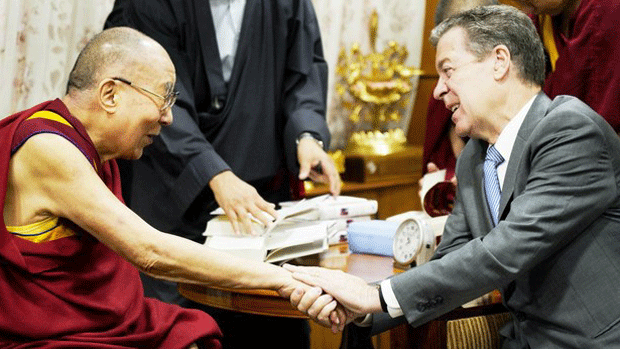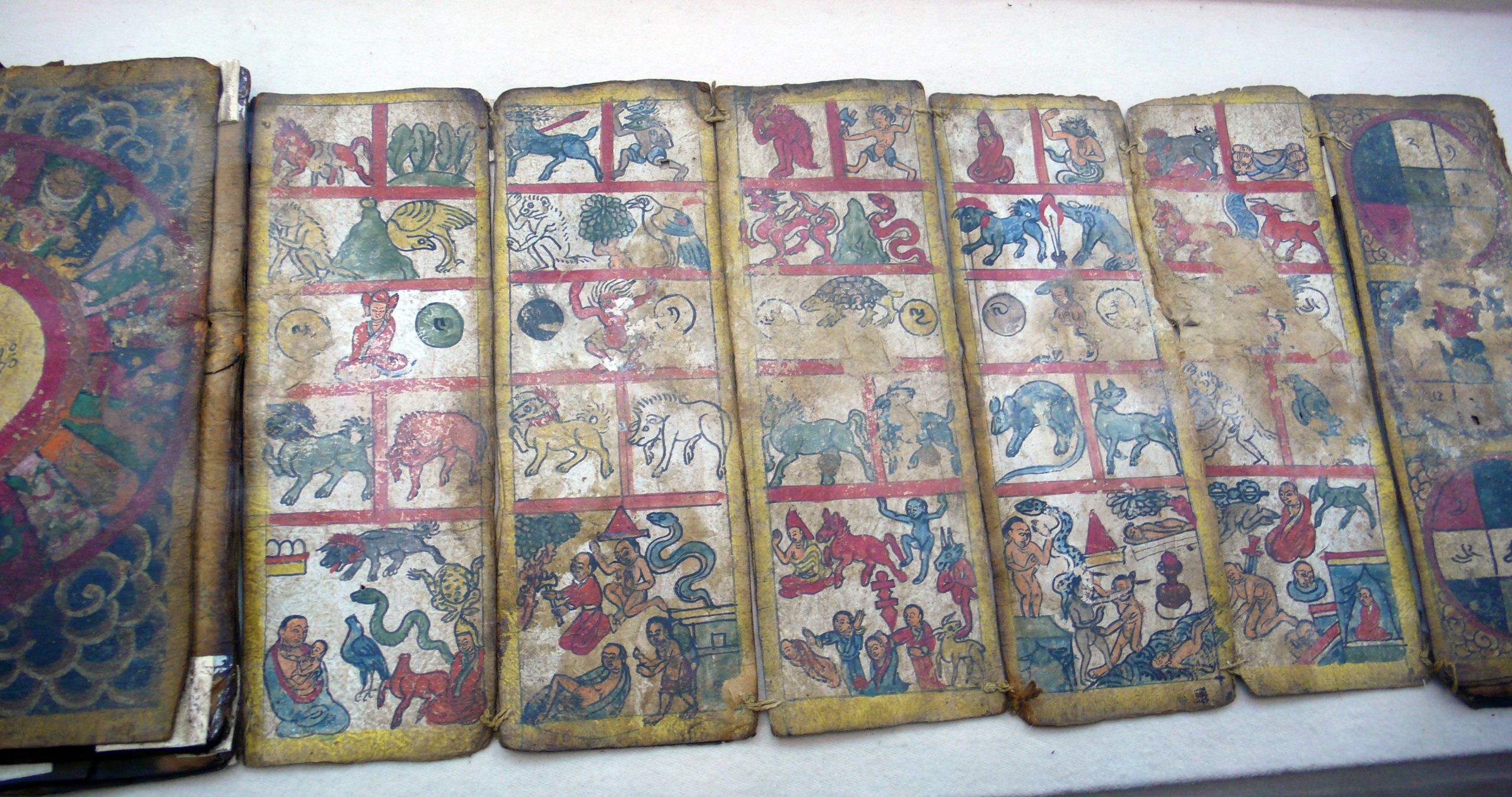
Speaking at a conference hosted by the Tibetan Institute for Performing Arts held in Dharamsala—seat of the Tibetan government-in-exile—U.S. Ambassador at Large for International Religious Freedom Sam Brownback hit out at what he called China’s “persecution of the Tibetan people’s faith.”
The Tibetan people have the right to choose their own religious leaders, Brownback said.
“The role of picking a successor to the Dalai Lama belongs to the Tibetan Buddhist system, the Dalai Lama, and other Tibetan leaders. It does not belong to anybody else, not any government or any entity,” Brownback said.
Concerns over the health of the 84-year-old Dalai Lama, who fled into exile in India following a failed 1959 Tibetan revolt against Chinese rule, have renewed uncertainties over his possible successor after he dies.
China claims control over the selection, saying that the process must comply with Chinese law, while the Dalai Lama himself says that if he returns, his successor will be born in a country outside of Chinese control.
Tibetan tradition holds that senior Buddhist monks and other high-ranking religious teachers are reincarnated in the body of a child after they die.
Beijing has sought in recent years to control the identification of other Tibetan religious leaders, including Tibet’s Panchen Lama, who was taken into custody at the age of six with his family in 1995, with Chinese officials then installing another boy of their own choosing in his place.
“We call on the [People’s Republic of China] government to release immediately the Tibetan-recognized Panchen Lama Gedhun Choekyi Nyima or share the truth about his fate with the world,” Brownback said in India.
“We stand with the people of Tibet as they seek to preserve their time-honored traditions including the right to venerate religious leaders of their choosing,” Brownback said.
“Decisions regarding the selection of Tibetan Buddhist leaders rest with the Dalai Lama, Tibetan Buddhist leaders, and the people of Tibet. Period!”
U.S. Congress takes action
Meanwhile, in a bipartisan show of U.S. support for Tibet, a new bill introduced in Congress threatens sanctions against Chinese officials interfering with the selection of a new Dalai Lama, with proposed penalties including the freezing of assets and denial of entry to the United States.
The Tibetan Policy and Support Act of 2019 was introduced in the House on Sept. 13 by Rep. James McGovern (D-Mass.), chairman of the U.S. Congressional-Executive Commission on China, and will be introduced in the Senate by Commission co-chair Senator Marco Rubio (R-Fla.).
The bill will then be submitted for review by the Committee on Foreign Affairs and Committee on the Judiciary, and put forward for debate and passage into law at a later date.
Chinese authorities meanwhile maintain a tight grip on the Tibetan region, restricting Tibetans’ political activities and peaceful expression of ethnic and religious identity, and subjecting Tibetans to persecution, torture, imprisonment, and extrajudicial killings.
Reported by Lobsang Gelek for RFA’s Tibetan Service. Translated by Dorjee Damdul. Written in English by Richard Finney.
Source: Copyright © 1998-2016, RFA. Used with the permission of Radio Free Asia, 2025 M St. NW, Suite 300, Washington DC 20036. https://www.rfa.org.












